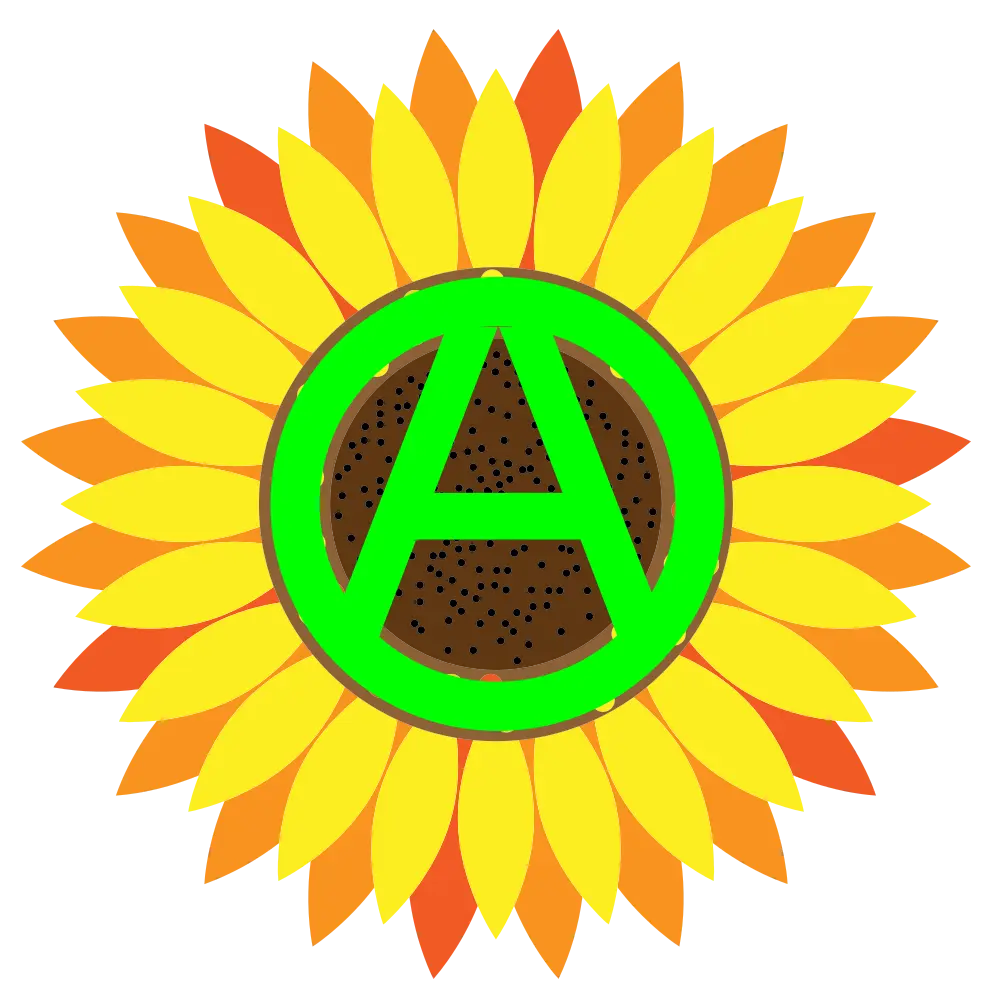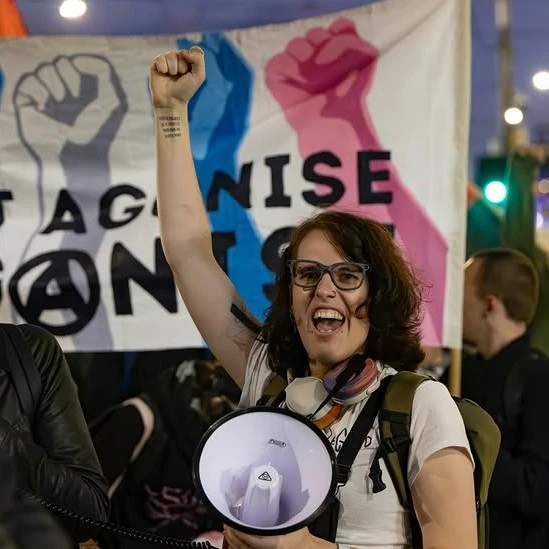I’ve long considered myself an anarchist and while I’m not very well read, I’m also not a baby anarchist. I haven’t read too many books on theory, instead I mostly learn from podcasts and discussions with peers. For whatever reason, I struggle to find the mental energy to get through books. I’m vaguely familiar with communalism but I’m still struggling with conflicting information.
-
Is communalism compatible with anarchism? I’ve come across people who identify as both as well as communalists who view their philosophy and goals as distinct from anarchism.
-
Is communalism statist or anti-statist? I’ve heard it described as anti-statist, yet depictions of it (when distinguished from anarchism) sound to me like they aim to establish a highly decentralized and directly democratic confederation of states.
-
How do anarchists and communalists in this community feel about the others’ praxis? I’m intrigued by both, including especifismo and libertarian municipalism.
It’s a subcategory of Anarchism, similar to how Syndicalism is one. Some more purist Anarchist consider it a lesser form as it does include some state like characteristics at municipal level, and on the other hand the person who is maybe most well known for Communalism (Murray Bookchin) decided to denounce Anarchism, because of (old man yells at kids playing on his lawn) “lifestyle anarchists”.
I don’t agree with everything Bookchin said, but I believe that this is mostly due to the info that was available at the time (it’s the ecology of freedom that I have in mind). At the same time, I really like his openness to look for new ways for social change. To my understanding, this is how he got to anarchy.
If I got this right, through his book social anarchism or lifestyle anarchim he actually denounced the path anarchy was taking: abandoning collective freedom practices, for personal freedom. I agree with this point, because imo, the important thing is to create societies that are organised in such a way (horizontaly, bottom-up etc) that nurture people so we can explore our full potential as humans. For me, the goal is not to do what I want at all times.
So he came up with social ecology and communalism, as a solution to the problems he found that contemporary anarchism had/has. And Rojava came along.
I dunno, at least this is my super-brief understanding so far.
on the other hand the person who is maybe most well known for Communalism (Murray Bookchin) decided to denounce Anarchism, because of (old man yells at kids playing on his lawn) “lifestyle anarchists”.
Glad to hear nothing ever changes lmao “these new punks are only in it for aesthetics!”
It’s all posers man. It’s about the ideas, not the tags.
I think realistically the two are about different time horizons. Anarchism is when the protocols are in our heads. It’s how we live. Communalism, to some extent, is about existing in a world where the implied violence of the system will shut down any “pure” anarchism. Create structure so the hierarchies know how to deal with it.
Sometimes it’s not even about hostility. People just can’t imagine a world without what exists today. Just having anarchism in your head is revolutionary.
Vs? Nah, anarchism + communalism. They are very compatible. You can have local organizations structured on anarchist principles that facilitate the flow of resources in commonalist ways. Tool Libraries, Housing Cooperatives, Community Cafeterias, worker collectives, etc.
To my understanding, communalism is approximate to collectivism, prioritizing the community over the individual, working toward communal benefit. Anarchism is effectively a negative position, no one can have authority over someone else. It is technically possible for a group to be focused on mutual benefit without a hierarchy. It’s just hard to start/maintain.
-
Well, they share many reasons (but not all). So they are largely compatible and should help each other.
-
Statist wouldn’t be accurate but a couple of their reasons do overlap with statists regarding bad actors.
-
Can’t answer that as I am a Library Socialist.
-
I am a … fan … of social ecology etc. But I feel such theories are difficult to apply in today’s large-scale politics. Even the path to trying out any such theories in practice probably starts with trying smaller changes like liquid democracy (that is already proven in the corporate shareholder world).
These theories might go through massive changes if they meet reality. Remnants of past “experiments”, say the basis of Liedloff’s continuum concept, are not quite as neat as these untested theories.
Communalism was theorized in the mid 20th century, we already had nation states and supranational bodies like the UN in existence. It is not a primitivist program. Instead of centralized national governance, it calls for a federation of communes and lays out a mechanism for them to make decisions over large amounts of territory/large populations as necessary via instantly-recallable delegates & community assemblies.
For perspective, hierarchical systems are not very good at governing large scale complex populations, as we can see from all available evidence.
I am a … fan … of social ecology etc. But I feel such theories are difficult to apply in today’s large-scale politics. Even the path to trying out any such theories in practice probably starts with trying smaller changes like liquid democracy (that is already proven in the corporate shareholder world).
These theories might go through massive changes if they meet reality. Remnants of past “experiments”, say the basis of Liedloff’s continuum concept, are not quite as neat as these untested theories.
deleted by creator
They were asking specifically about communalism, not communism.
Well caught. It started of as an autocorrect error and then I lost sight.
Anarchy rejects formal structures “all power corrupts”.
Communalism accepts some formal structures "we need power to create something democratic … ". I don’t think communalism scales very well. It becomes someone’s communism as the numbers increase.
There are some communalism set-up in the west of England, I think it’s more of an off grid thing, but they’re long lived. Maybe they’re collapsed now.
Perhaps you’re referring to theory I haven’t read, but does anarchism really reject structure itself? Certainly hierarchical structures are rejected, but organisation requires structure, even if it’s a flat one.
I haven’t know anarchy any other way, so I’m a little confused about the distinction. Granted, there are many flavours of anarchy and I don’t know them well, but I thought they all accepted structure itself while rejecting the hierarchical.
Like you say, there’s lot of schools of thought around this. I think most everyone acknowledges that you have to have some level of organization in order for society to function. The question is, at what scale?
Some would say anarchy can exist alongside a state. Anarchy is how a community meets its needs when the state doesn’t, filling in the gaps between the broader pillars. The idea is that anarchy can “grow past” the state by outperforming larger institutions that don’t benefit from the same entrenchment in local community. I see this as a useful perspective to approach mutual aid from, for instance.
Others view the state and larger systems as an inherent threat to communities’ ability to organize themselves. As authoritarians seek greater power, they seek to undermine communities’ self-determination so power can be consolidated under the state. This is where historical tension between anarchists and state communists has arisen. People in this camp aren’t rejecting organization altogether, but view larger systems as having inherently corrupting incentives.
I tend toward the former personally, but know a lot of folks of the latter variety and see a lot of value in it too. I think it’ll always be a balancing act between local, community-driven structure and broader, country-scale structure.
deleted by creator
What definition are you referring to?
We are talking about Anarchy/Anarchism as a political theory, and what you say is plainly wrong in that context
Sure, they is also a propagandized layman’s understanding of “anarchy” = chaos, but this is not what we are talking about in this community.
I understood it as
rejection of hierarchical authority and coercive order.
I was not referring to chaos but the rejection of defined order because it is coercive.






